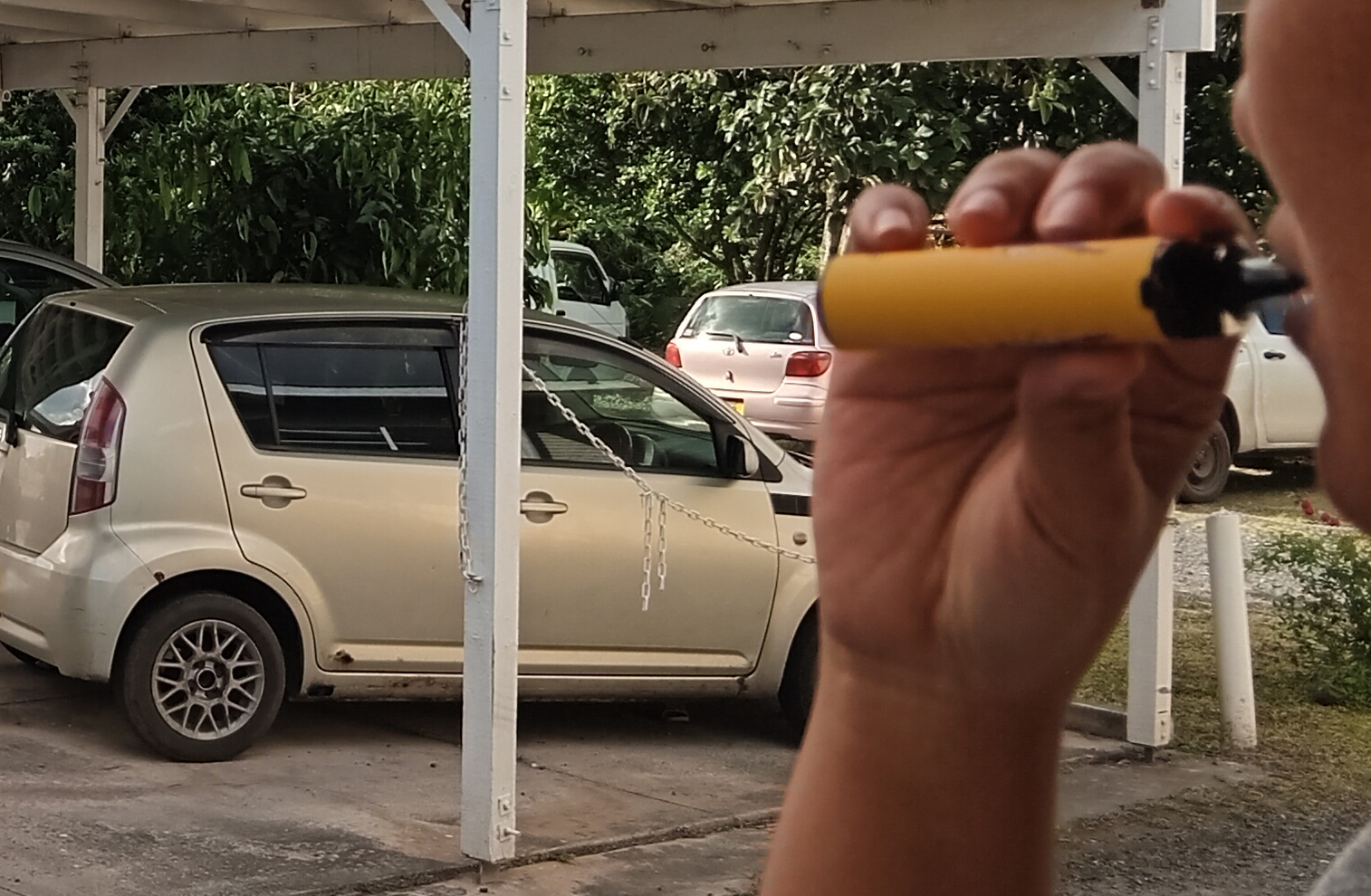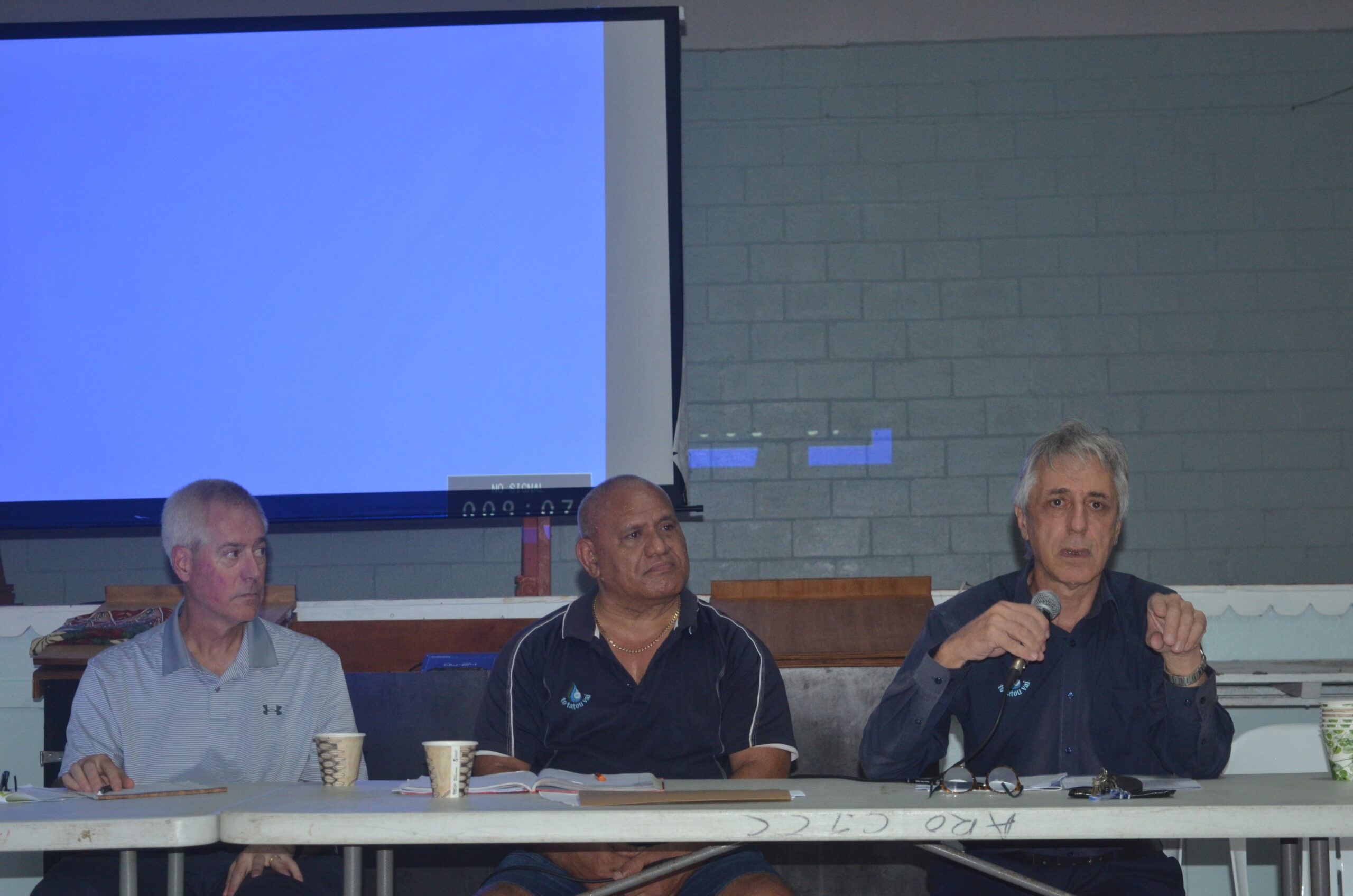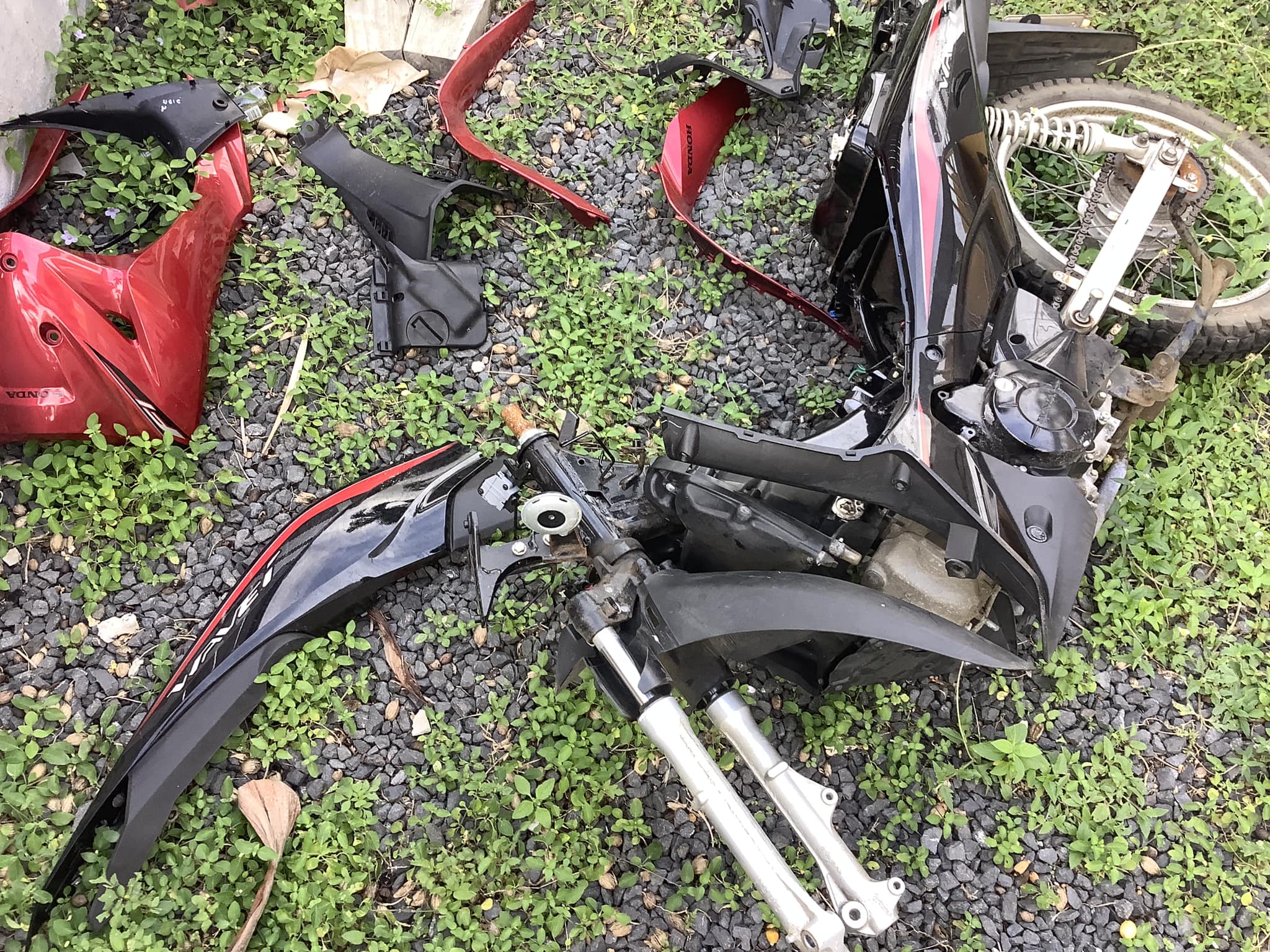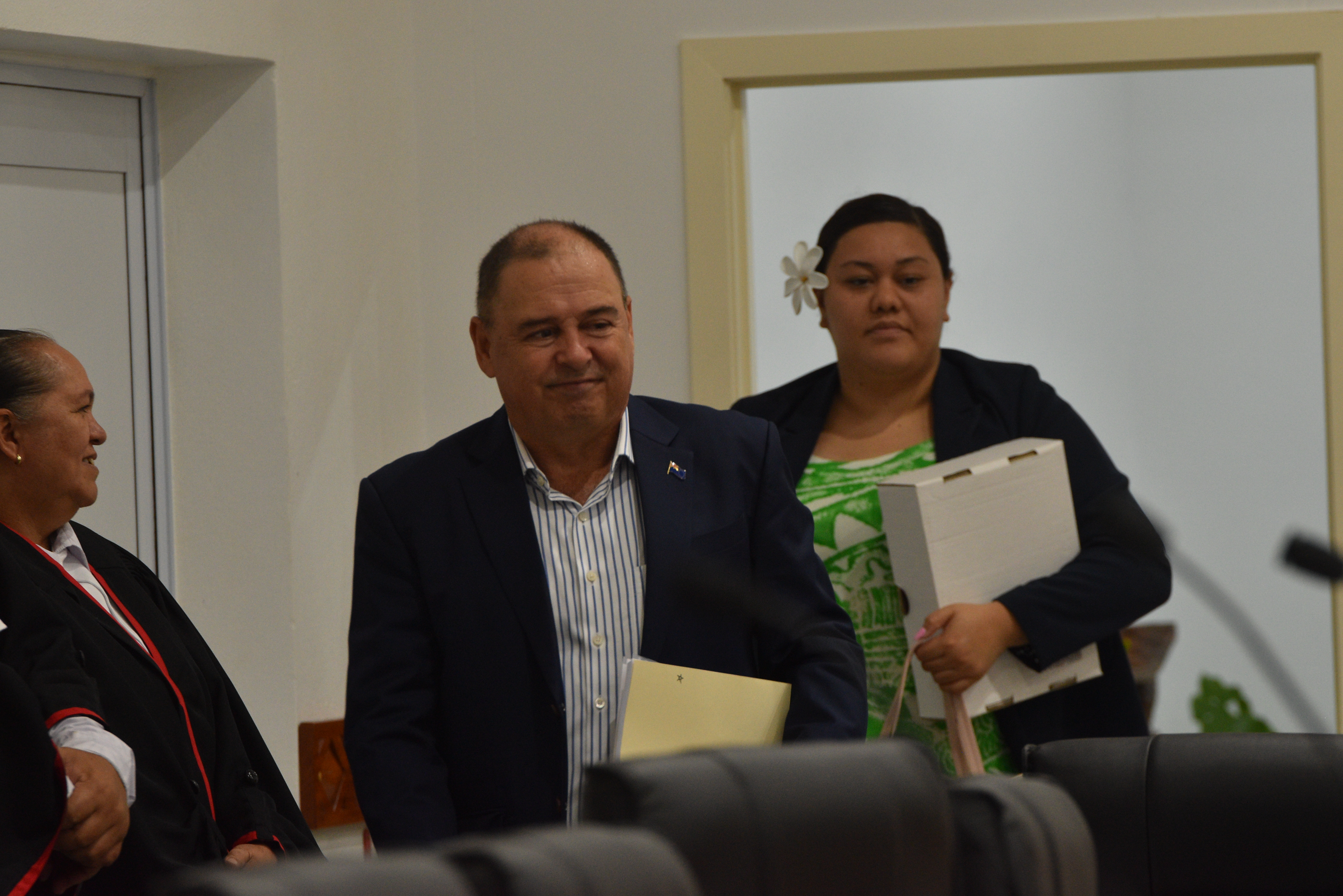‘I’m everywhere’: Meet Titikaveka Community Patrol’s sole officer
Thursday 20 April 2023 | Written by Joanne Holden | Published in Features, Go Local
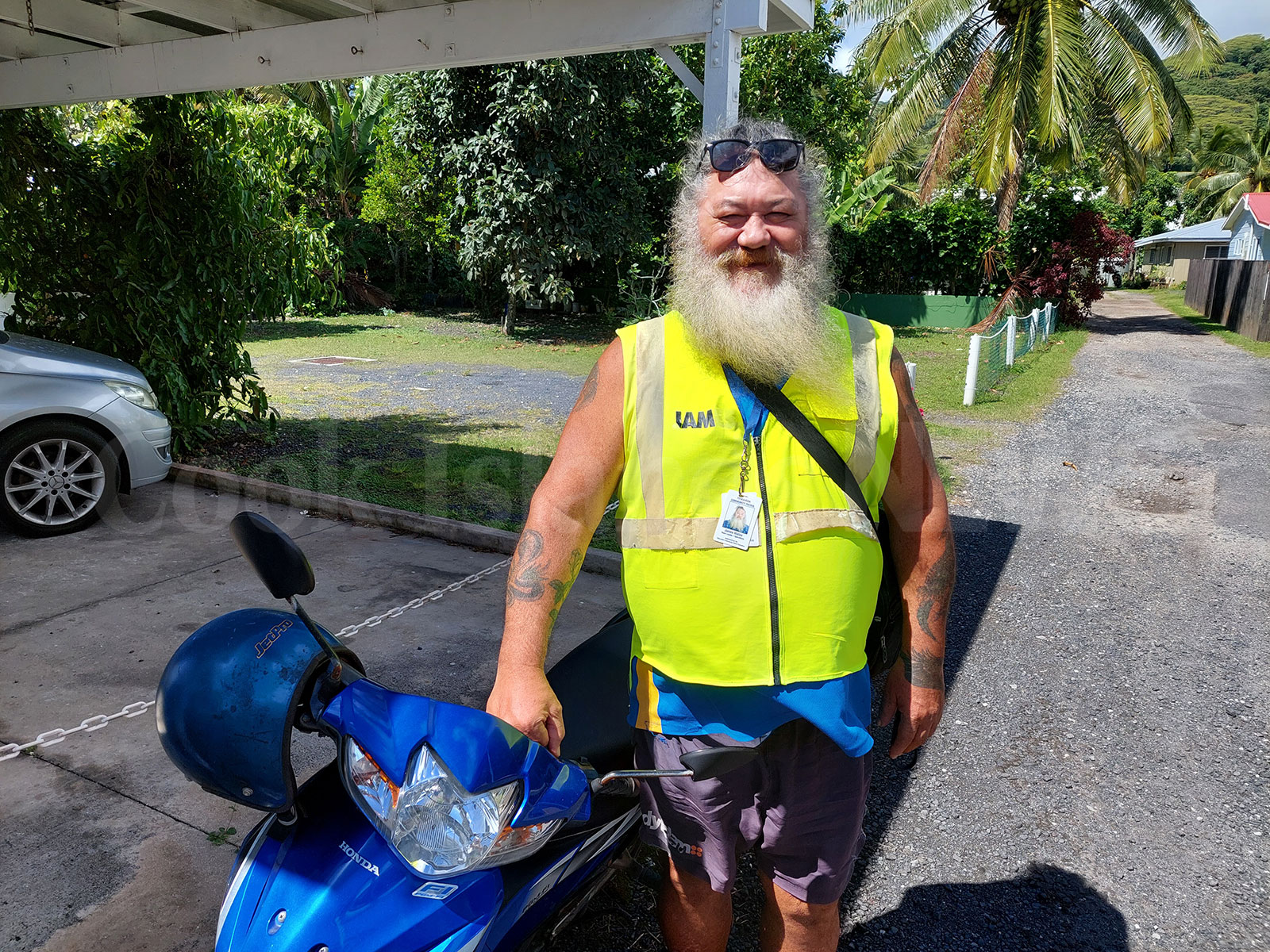
Mataa records everything he sees as he patrols the 11-kilometre stretch of Titikaveka, in case the information can drum up witnesses and help solve a crime further down the line. 23041936
James ‘Big John’ Mataa has been watching over his village as sole officer of the Titikaveka Community Patrol ten hours a night, every night for the past five years. Joanne Holden reports.
The patrol’s membership has dropped from more than 20 to just two in the almost 10 years since it was established.
Mataa, 61, has been on his own for about half that time. It wasn’t until about a year ago that he signed up another volunteer, who helps out two hours a night by surveying the area between home and work as part of his commute.
Despite being almost a one-man-band since 2018, Mataa refuses to shorten his patrol hours because “they burgle at any time”.
“Even if I’m not really stopping a crime, it must be worrying them – because I’m everywhere,” he says.
“I’ve extended out as far as Mai’i Central and the Hub, then I’m at the bus stop at Fruits, then I’m at the Kano Store, then I’m at the Woo Store, then I’m at Wigmore’s. I do the back roads as well, the side roads.
“Yeah, I’m everywhere.”
Titikaveka suffered 26 burglaries a month when Mataa first joined the patrol in 2016. Now, there are about three.

James ‘Big John’ Mataa joined the Titikaveka Community Patrol in 2016, becoming its sole officer two years later. 23041935
“When I first started, there was seven of us – but that had dropped down from over 20. A lot of them were in their late 60s, 70s. Some passed away, so the numbers dwindled,” he says.
“The seven of us, we were doing two hours each a night.”
Mataa says the patrol was established “maybe two years” before he joined.
“I’m not certain of that because there’s no books, no journal, no nothing. I implemented that when I started.”
Mataa records everything he sees as he patrols the 11-kilometre stretch of Titikaveka – the time a shop closes, when the newspaper is delivered, a motorcycle parked in the bushes – in case the information can drum up witnesses and help solve a crime further down the line.
“It’s easier to see bikes in the dark, hiding behind hedges.
“When you come past on your bike, because your light spreads, you see a little glint. Flat wheel, chain off, no petrol – those are the only three reasons why your bike would be parked in a hedge. If
it’s none of those three, we report it to police.
“To be cheeky, sometimes we move the bike. He’s just come and done his burglary, and he’s got all his stuff but no bike. We’ve caught a few like that.”
Mataa says the village’s crime rate was “dead” when Covid-19 closed the border in 2020, only picking up again when “staycations” began – tourist accommodation being the primary target for thieves.
“Tourists get the false impression we are a safe haven.
“They leave their sliding doors unlocked, sometimes open with just the curtains drawn. They’re easy pickings.”
Mataa says thieves, who also target businesses as well as fruit and vegetable plantations, are becoming more “sophisticated” – cutting wires to cameras, using a screwdriver to tap open locks,
and pouring water over security equipment.
"It’s the type of stuff you see in Mission: Impossible.”
Despite Mataa’s only income being the pension, the patrol is funded “mostly out of my own pocket”.
Petrol costs between $24 and $28 per week, while Mataa’s other major costs are office supplies and keeping his motorcycle running.
His numerous attempts to apply for grants have been rejected, he says.
“We’ve approached the Indian Government, Japanese Government, Spanish Government, the Cook Islands Government. We never meet the criteria for funding.
“From the Cook Islands Government, we got two torches and two vests eight years ago.
“I’ve priced for a few safety gears I don’t have. A little compressor at the office, spare wheels, spare tyres. Fire blankets, first aid kits – because I have come across a few accidents and wounded folks, and I just haven’t had the stuff to help them – other than just being there, and traffic
control.”
Most support for the patrol comes from the Titikaveka community, including from Charlie’s Café and Bar; Motu Villas; Mai’i Central; and the committee for Kent Hall, which provides the office space out of which Mataa operates.
“I appreciate the support of past donors and sponsors as well,” Mataa says.
“There’s some people that, if they see me at a shop, they’ll come in and drop something off to me. One guy used to come in with a big jar of coffee, some milk, and sugar. Another lady used to make
a cake. Another lady would stop in and give me some sandwiches.”
Mataa was born in New Zealand in 1961, moving to the Cook Islands close to 30 years ago.
“When I came here, I went to all the outer islands. I lived in Palmerston for 18 months, and I learned a lot from them. Now I’ve been to all the outer islands, except for Mangaia,” Mataa says.
“I was the head ranger for Suwarrow National Park. Did that for two seasons, 2010 and 2011. I had to train to be a police officer, as part of my duties – customs officer, immigration officer, health worker, all these government positions at the minimum end.”
He has been married three times, and has six children between the three women.
“None of them [his children] have come to Raro, but I’m on Facebook with them all the time.
“They all get on like a house on fire.” Laughing, he adds: “Even the wives, which I hate. They all bully me. I might be having a little bit of a tiff with one of the wives and the other two will jump on it. It’s quite funny sometimes. We have fun.”
He was previously part of the Taumarunui Community Patrol, which Mataa says was the first neighbourhood watch in New Zealand.
Mataa’s first night on patrol in Titikaveka was May 16, 2016.
It was the same day the group moved from the upstairs area of Kent Hall, into an office space between the hall and Kano Store.
“I had nothing better to do, and I wanted to see the crime rate drop down.”
Mataa wants to keep the patrol running “for as long as I can”.
“I would like to see someone else continue it,” he says.
“If people want to join, just come and do a couple hours a night.”
Mataa can be contacted on the phone number 73289 between 6.30pm and 8.30am, seven days a week.
“Titikaveka Community Patrol, for the safety and security of the Titikaveka community,” he says.








